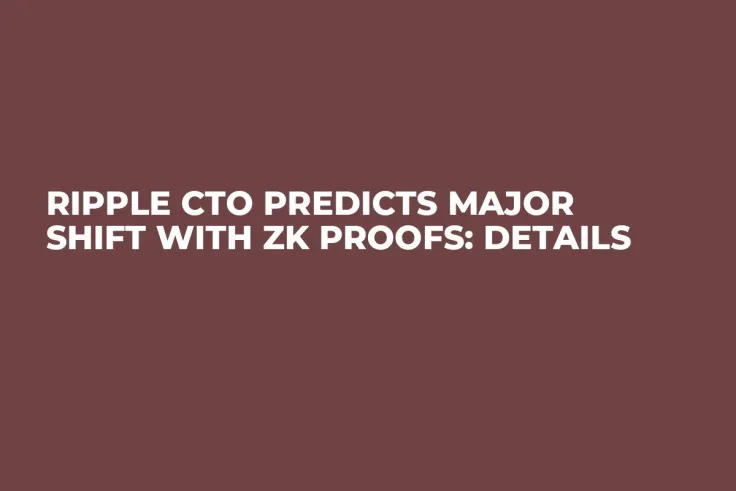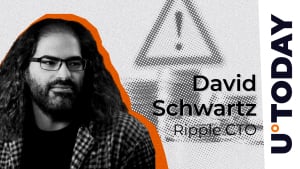
Disclaimer: The opinions expressed by our writers are their own and do not represent the views of U.Today. The financial and market information provided on U.Today is intended for informational purposes only. U.Today is not liable for any financial losses incurred while trading cryptocurrencies. Conduct your own research by contacting financial experts before making any investment decisions. We believe that all content is accurate as of the date of publication, but certain offers mentioned may no longer be available.
Ripple CTO David Schwartz has sparked discussion about zero-knowledge (ZK) proofs, predicting that the cryptographic advancement could bring a major shift in the blockchain space.
An X user claimed that private ledgers were technically impossible and not part of XRP Ledger’s (XRPL) functionality. Another X user responded with a 2019 tweet from Ripple CTO David Schwartz describing a vision of interconnected private ledgers: "For example, imagine 100 groups who want private ledgers for low-cost transactions in the group. They can each run private ledgers with real XRP, but where txn fees are much lower. You can bridge to/from the public XRP ledger as needed."
Weighing in on the revived thread, Schwartz shared new insights into how recent developments, notably ZK proofs, could give life to this vision: "ZK proofs make this more practical and secure and allow you to come fairly close to the security and decentralization guarantees of a layer one." Schwartz added, "I’m not convinced the use cases are here yet, but I suspect they will be one day."
Zero-knowledge proofs (ZK-proofs) are cryptographic protocols that allow one party to prove a statement is true without revealing any additional information, making them an effective tool for privacy-preserving transactions on blockchain. Schwartz's comment suggests that ZK proofs could close the gap between private transaction systems and decentralized public chains.
ZK proofs: What's coming?
In an April blog post titled "Why I support privacy," Ethereum co-founder Vitalik Buterin indicated that AI is greatly increasing capabilities for centralized data collection and analysis while greatly expanding the scope of data shared voluntarily.
Buterin proposed solutions based mostly on zero-knowledge proofs (ZK-proofs) to privacy concerns, as these allow for "fine-grained control of who can see what information."
"We have more powerful tools to preserve privacy, especially in the digital realm, than the 1990s cypherpunks could have imagined: highly efficient zero knowledge proofs (ZK-SNARKs) can protect our identities while revealing enough information to prove that we are trustworthy, fully homomorphic encryption (FHE) can let us compute over data without seeing the data, and obfuscation may soon offer even more," Buterin wrote.


 Vladislav Sopov
Vladislav Sopov Dan Burgin
Dan Burgin